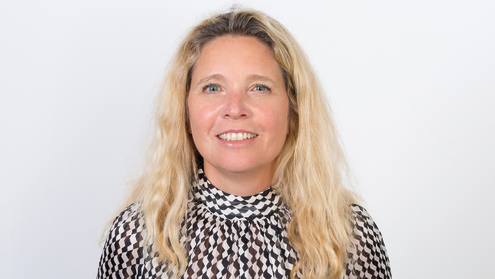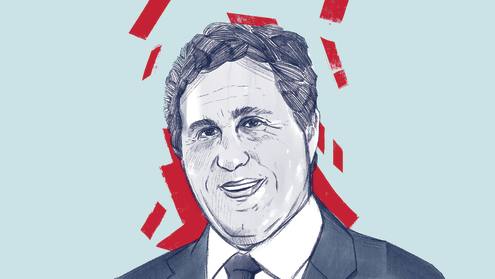Despite its in-built ethical focus, and the fact that many Muslim-majority countries are among the most impacted by climate change, Islamic finance has limited engagement with the wider sustainable finance world.
Islamic finance is a system of finance which is compatible with the laws and teachings of Islam. Most notably from a finance perspective, this involves the prohibition of interest payments – a ban which was also in early Christian tradition.
Islamic finance also includes a ban on the financing of “sin sectors” such as alcohol and pornography, and restrictions on “toxic” financial instruments that can drive negative market behaviours, such as short-selling.
The current global Islamic finance market is worth $4tn and is growing year on year, but with limited engagement with sustainability products, this represents a potential pool of untapped capital that could be used to help finance the transition to net-zero carbon emissions and achieve the UN Sustainable Development Goals.
An examination of Islamic financial institutions’ (IFIs) annual reports indicates few have developed net-zero goals, or joined frameworks such as the Principles for Responsible Investment or Principles for Responsible Banking. IFIs seem instead to have aligned themselves to their domestic national goals.
The Tayyib Project, jointly launched by the Islamic Finance Council UK (UKIFC) and Global Ethical Finance Initiative (GEFI), seeks to change this situation. It is inspired by the concept of “tayyib”, an Arabic term which appears across Islamic scripture with the term often being used as a qualifier of “wholesomeness” or “goodness” that extends beyond the permissible (i.e. halal).
It appears 46 times in the Koran with differing applications, but each time the common theme is that of seeking to go beyond the baseline to achieve a better state. Similar in a way to how impact investing goes beyond negative screening (“do no evil”).
The Tayyib Project seeks to create a stamp that will verify that an investment product meets the standards of existing sharia-compliant practices as well as taking into consideration factors such as climate, nature and biodiversity, modern slavery and human rights as reflected in existing leading market practice environmental, social and governance (ESG)/sustainability standards.
Rather than reinvent the wheel and conscious of the proliferation of conventional ESG/sustainability frameworks and standards, the Tayyib Project is more of an impact-oriented Rosetta Stone, encouraging socially and environmentally positive investments globally across cultures.
The tayyib stamp aims to encourage the Islamic investment community to augment existing practices
Interestingly, principles of Islamic finance also address and add a new voice to the challenges mainstream global ESG/sustainability markets are facing. To start with, IFIs would not be dealing with the Tesla versus tobacco debacle and the ban on toxic financial instruments (e.g. the recent GameStop short-selling mess) seems to be an area on which most, if not all, responsible investment frameworks are silent.
The tayyib stamp aims to encourage the Islamic investment community to augment existing practices (where helpful) to innovate by proactively incorporating ESG and socially responsible investing factors into current Islamic investment management processes. This allies the growing Islamic finance and conventional finance industries in an inclusive manner with the interest of a wider positive impact on society.
This alignment is also intended to open up major market opportunities. ESG investing is expected to grow by 84% to more than $30tn by 2026, with Islamic finance expecting to reach $5.9tn by the same time. A number of global agnostic liquidity pools are looking to deploy in the Global South, which is the natural footprint for many Islamic asset managers who know the market well.
Equally, existing Islamic asset owners can benefit from investment managers providing sustainability-linked products that are both sharia-compliant (halal) and also closer aligned to the maqasid (spirit of Islamic law).
There is clearly a desire for green and sustainable Islamic financial products, with the UKIFC estimating $30bn of additional capital can be raised through the green and sukuk (Islamic bonds) market by 2025. Currently, 5% of all sukuk in issuance are green or sustainable with Indonesia being the first sovereign to have issued such in 2018.
As the COP28 climate summit heads to the UAE this year, eyes will be on Islamic finance, with the UAE being a key global Islamic finance hub. The majority of the world’s green sukuk are listed on Nasdaq Dubai and the region will be keen to demonstrate Islamic finance is aligning to the global climate priority.
More on Islamic banking
Through the Path to COP28 campaign (the first and largest finance-focused campaign for COP28), GEFI and UKIFC are working with global standard setting bodies, and both conventional and Islamic financial institutions, to develop and launch the tayyib stamp at COP28.
For many years, the concept of tayyib has been much talked about, both by those highlighting the market opportunity and others noting the moral imperative for Islamic finance to help drive global finance for positive change. With the momentum of COP28, it seems the time has come for the tayyib concept to start becoming a market reality that can bridge cultures, drive inclusive growth and – most importantly – help address the climate emergency.












